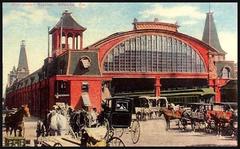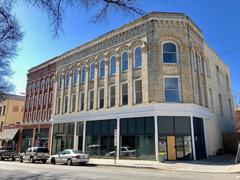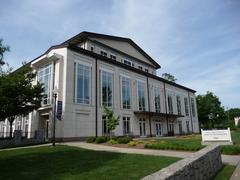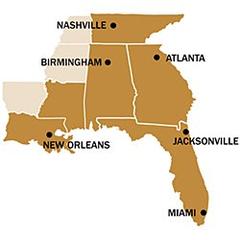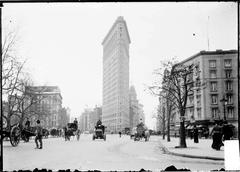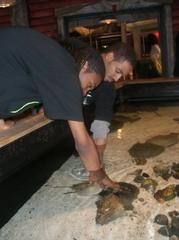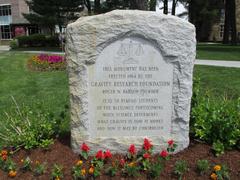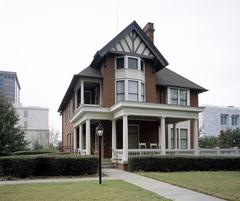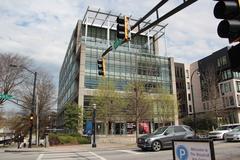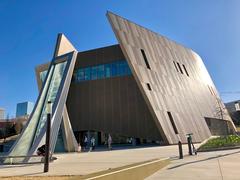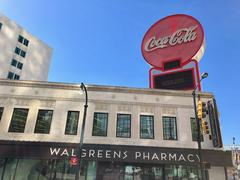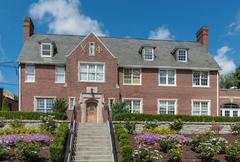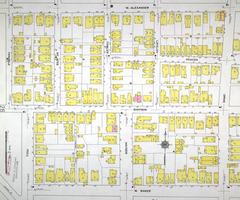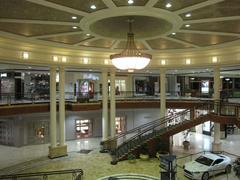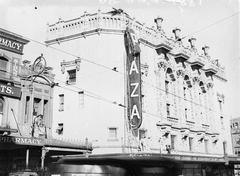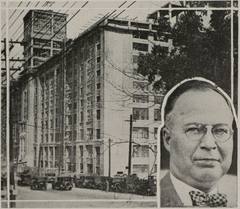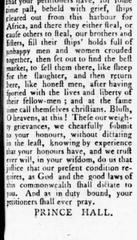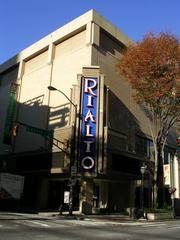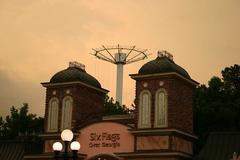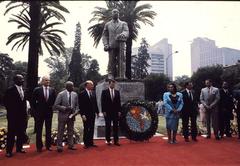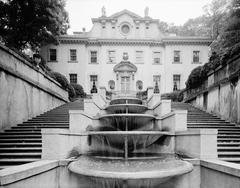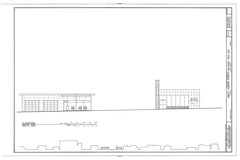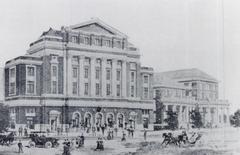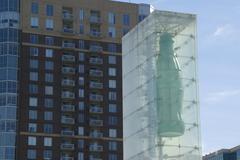
Regal Tara Cinemas Atlanta: Visiting Hours, Tickets, and Visitor Guide
Date: 03/07/2025
Introduction
Regal Tara Cinemas—known affectionately as Tara Theatre—was an Atlanta icon for over five decades, revered for its distinctive blend of cinematic history, art-house programming, and intimate architectural charm. Since opening in 1968 with a spectacular 70mm screening of Gone with the Wind, Tara Theatre evolved into a cornerstone of independent and international film culture in Atlanta. Although its doors closed in late 2022, the venue’s legacy endures through the memories of loyal patrons, the city’s ongoing film culture, and the resurgence of independent cinema venues nearby.
This comprehensive guide explores Tara Theatre’s rich history, cultural impact, architectural features, and practical information for visitors—both those seeking to honor its legacy and those looking to experience Atlanta’s vibrant film scene today. It also highlights nearby attractions and provides essential tips for film lovers and tourists alike.
For the latest updates, consult the official Tara Theatre website and additional trusted sources such as ArtsATL, Cinema Treasures, and Secret Atlanta.
Table of Contents
- Introduction
- History of Tara Theatre
- Architectural & Operational Features
- Cultural Significance
- Visiting Hours & Ticket Information
- Accessibility & Travel Tips
- Nearby Attractions
- Frequently Asked Questions
- Visuals & Media
- Conclusion
- References
History of Tara Theatre
Origins & Early Years (1968–1980)
Tara Theatre opened on July 10, 1968, under Loew’s Theatres, its name a tribute to the plantation in Gone with the Wind (Wikipedia; Cinema Treasures). Its debut featured a grand 70mm showing of Gone with the Wind on a massive 60-foot screen. The original design boasted modernist lines and a large auditorium with over 1,000 seats, quickly making Tara a focal point for Atlanta’s film lovers (TonetoATL).
In 1975, following industry trends, the theater was divided into two screens, allowing for a greater variety of programming (Cinema Treasures).
The Lefont Era & Expansion (1980–1990)
A pivotal shift occurred in 1980 when George Lefont, a champion of Atlanta’s art-house cinema, purchased the theater (ArtsATL). Lefont elevated Tara’s profile by programming independent, foreign, and classic films often unavailable elsewhere in Atlanta. In 1983, a third screen was added, enhancing its role as a hub for cinephiles. Notably, Tara was among the first Atlanta theaters to screen Star Wars in 1977 (Garden & Gun).
Corporate Ownership & Renovations (1990–2002)
Ownership changed hands multiple times in the 1990s, passing from Hoyt’s Cinemas to United Artists Theatres, and then to Regal Entertainment Group in 2002 (SaportaReport). Renovations during this period introduced a four-screen layout, streamline moderne details, and classic Hollywood décor (Wikipedia).
Community Role & Final Years
Tara Theatre became a vital venue for film festivals, including the Atlanta Jewish Film Festival, and was famed for its curated programming that challenged and inspired audiences (ArtsATL). Its prime location on Cheshire Bridge Road made it accessible to a wide audience (Urbanize Atlanta).
In 2022, Regal announced the closure of Tara Theatre, prompting an outpouring of nostalgia and appreciation from Atlanta’s film community (Atlanta News First).
Architectural & Operational Features
Tara Theatre’s architecture combined mid-century modernism with later streamline moderne flourishes. The interior featured intimate auditoriums, vintage film equipment displays, and classic Hollywood portraits (Rough Draft Atlanta). Noteworthy was the theater’s ability to project historic 35mm and 70mm film prints, offering a rare, authentic experience (Urbanize Atlanta).
Cultural Significance & Community Impact
Tara Theatre was more than a cinema; it was a gathering place for Atlanta’s cinephile community. Its commitment to diverse films—ranging from international art-house gems to provocative indies—cemented its status as a cultural landmark. The theater’s legacy continues to influence Atlanta’s independent film scene, with venues such as Plaza Theatre and Landmark Midtown Art Cinema carrying on its spirit (Atlanta Hits).
Visiting Hours & Ticket Information
(Historic Information; Theater Closed as of Late 2022)
- Typical Hours:
- Monday–Thursday: 12:00 PM – 10:00 PM
- Friday–Sunday: 11:00 AM – 11:00 PM
- Tickets:
- Prices ranged from $10–$15; matinee, senior, and student discounts were available.
- Tickets could be purchased online or at the box office.
For updates regarding reopening efforts or events, visit the Tara Theatre website.
Accessibility & Travel Tips
- Accessibility: Fully wheelchair accessible, with designated seating and restrooms; assistive listening devices offered upon request.
- Parking: On-site and nearby street parking available; early arrival recommended for busy showtimes.
- Transit: Accessible via MARTA bus routes; close to major roads.
- Dining: An array of local restaurants nearby for pre- or post-movie meals.
Nearby Attractions
- Martin Luther King Jr. National Historical Park (National Park Service)
- Ponce City Market
- Atlanta BeltLine Eastside Trail
- The Historic Fourth Ward Park
- Plaza Theatre (another historic cinema in Atlanta)
Frequently Asked Questions (FAQs)
Q: Is Tara Theatre currently open?
A: The original Regal Tara Cinemas closed in late 2022. Check the official Tara Theatre website for any reopening news or special events.
Q: Where can I see similar films in Atlanta?
A: Visit Landmark Midtown Art Cinema, Plaza Theatre, or Cinefest Film Theatre for curated independent and international films (Atlanta Hits).
Q: Is the theater wheelchair accessible?
A: Yes, Tara Theatre provided accessible seating and facilities.
Q: Are there special events or film festivals?
A: Historically, Tara hosted festivals like the Atlanta Jewish Film Festival; similar events continue at other Atlanta venues.
Visuals & Media
Explore more visuals and potential virtual tours on the official Tara Theatre website.
Legacy & Alternatives
With the closure of Regal Tara Cinemas, Atlanta’s film community rallied to support art-house cinema elsewhere. The Plaza Theatre, Landmark Midtown Art Cinema, and Cinefest Film Theatre now anchor the city’s independent and international film landscape. Tara’s influence endures, inspiring a diverse, engaged audience and a robust festival scene (Secret Atlanta; SaportaReport).
Related Atlanta Historical Site: Martin Luther King Jr. National Historical Park
Located nearby, the Martin Luther King Jr. National Historical Park commemorates the life and legacy of Dr. King. Visitors can tour his childhood home, the historic Ebenezer Baptist Church, and the King Center. The park is open daily, typically from 9:00 AM to 5:00 PM, and is fully wheelchair accessible. Admission is free, though advance reservations may be required for some tours. For more, see the National Park Service website.
References
- Tara Theatre - Wikipedia
- Tara Theatre - Cinema Treasures
- Shuttering of Iconic Tara Inspires Arthouse Theater Innovation and Appreciation - ArtsATL
- Regal Cinemas to Close Tara Theatre Atlanta - TonetoATL
- Tara Theatre Reopening - Rough Draft Atlanta
- Tara Theatre Reopening atL - Secret Atlanta
- Closing of Tara Theatre Ends an Era of Atlanta Cinema - SaportaReport
- Regal Tara Closes Its Doors - Atlanta News First
- Visiting the Martin Luther King Jr. National Historical Park - National Park Service
- Best Movie Theater in Atlanta - Atlanta Hits
Conclusion
Regal Tara Cinemas remains a touchstone in Atlanta’s cultural memory—a testament to the power of independent film and community engagement. While the theater itself has closed, its influence resonates in the thriving local film scene and the enduring appreciation for diverse cinematic storytelling. Explore Atlanta’s film heritage by visiting alternative venues, supporting local festivals, and honoring Tara’s spirit whenever you seek out thought-provoking cinema.
For more Atlanta cultural guides and timely updates, download the Audiala app and follow us on social media.



